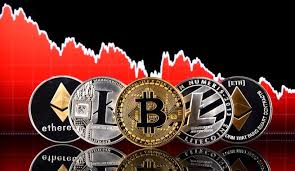
Crypto Trading No KYC: A Comprehensive Guide
The realm of cryptocurrency is constantly evolving, capturing the interest of traders and investors alike. One of the standout features of this market is the option for Crypto Trading No KYC visit website, which stands for ‘No Know Your Customer.’ This approach offers significant advantages for users seeking privacy and ease of entry into the crypto space. In this article, we will explore the concept of trading cryptocurrencies without KYC compliance, the benefits and drawbacks, and what to expect in the future.
Understanding KYC in Cryptocurrency
Know Your Customer (KYC) refers to the process through which financial institutions and service providers verify the identities of their clients. In the context of crypto trading, KYC is implemented to prevent fraud, money laundering, and other illicit activities. While KYC procedures are standard in many traditional financial markets, they can create barriers for prospective traders in the crypto market who value anonymity and privacy.
Benefits of Crypto Trading No KYC
There are several advantages to engaging in crypto trading without the KYC requirements:
- Privacy: The most significant benefit is undoubtedly privacy. Users can trade cryptocurrencies without having to disclose personal information, which can be appealing in a world where data breaches are rampant.
- Accessibility: No KYC trading platforms often have fewer restrictions, allowing users from various jurisdictions to participate in the market more easily.
- Speed: The registration process on platforms that do not require KYC is typically faster, enabling traders to start trading almost immediately.
- Less Regulation: These platforms may operate with fewer regulatory pressures, often focusing on providing flexibility and speed in trading.
Challenges and Risks of No KYC Trading
While there are advantages, there are also risks associated with trading cryptocurrencies without KYC:
- Security Risks: Some non-KYC platforms may lack robust security measures, making them more susceptible to hacks and scams.
- Reputation Concerns: Traders may find that non-KYC exchanges are regarded with skepticism, as the lack of regulation can foster a negative reputation.
- Liquidity Issues: Non-KYC exchanges may have lower trading volumes, which can lead to issues with liquidity, making it harder to execute larger trades.
- Legal Implications: Depending on local laws, trading without KYC can have legal ramifications. Traders should be aware of their local regulations before participating.

Popular No KYC Exchanges
A number of platforms offer crypto trading without KYC requirements. Some popular options include:
- Binance: While Binance has implemented KYC for certain users, it still allows trading without KYC for smaller amounts.
- Bisq: A decentralized exchange that embraces privacy and does not require users to provide personal information.
- LocalBitcoins: A peer-to-peer exchange where users can buy and sell Bitcoin directly with each other, often without KYC verification.
- Kraken: Similar to Binance, Kraken offers a tiered service level where users can trade small amounts without KYC.
Future of No KYC Trading
The future of crypto trading without KYC looks promising, especially as the demand for privacy continues to grow among users. Decentralized finance (DeFi) could play a significant role in the evolution of KYC-free trading, as it emphasizes user autonomy and anonymity. Technological improvements in blockchain and privacy features may further enhance users’ ability to trade anonymously while maintaining security.
Conclusion
Crypto trading with no KYC presents a unique opportunity for those seeking privacy and convenience. However, potential traders must weigh the benefits against the inherent risks, including security and regulatory concerns. As the crypto landscape evolves, traders should stay informed about changes in regulations and emerging platforms that align with their trading preferences and privacy needs.
Ultimately, the world of cryptocurrency offers a diverse range of trading options. By understanding the implications of trading without KYC, individuals can make informed decisions and navigate this exciting market more effectively.




